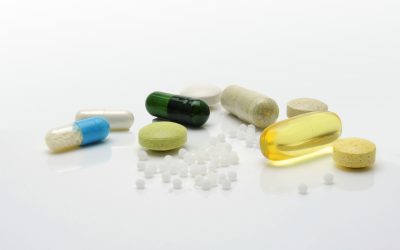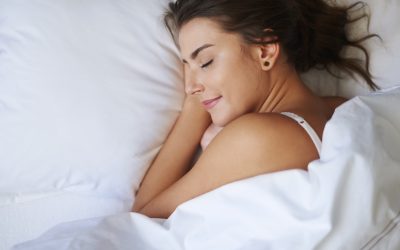What do XENOESTROGENS have to do with hormones?
If you’ve been following the headlines over the last few years, you may have heard about xenoestrogens, these estrogen mimickers or “fake estrogens”, and are likely most familiar with a chemical called Bisphenol-A, or BPA – commonly found in plastic.
This particular chemical has the potential to cause notable changes in your hormone levels, which could lead to infertility.
But BPA is just ONE of many dangerous environmental toxins to watch out for – that are known to mimic estrogen and wreak havoc on your health and hormones.
Xenoestrogens…running interference
Xenoestrogens are synthetic endocrine-disrupting chemicals that impact our delicate hormonal balance by mimicking the “bad estrogens” in our bodies.
To get a bit more technical, the National Institute of Environmental Health Science (NIEHS) explains, “Endocrine disruptors are chemicals that may interfere with the body’s endocrine system and produce adverse developmental, reproductive, neurological and immune effects in both humans and wildlife. The damage is believed to be most severe during prenatal or early pregnancy exposure.”
What is estrogen doing in my shampoo?
Most personal bath body care products like shampoo, lotions, and deodorants are filled with xenoestrogens that come in the form of sulfates, phthalates, parabens, and Triclosan – which is a known hormone disruptor.
Household cleaners, especially ones that claim to be antibacterial, also often contain Triclosan – which is not only linked with disruption of hormone function but also in the development of antibiotic resistance in bacteria.
These and other endocrine disrupting chemicals are used by manufacturers because they make the skin soft, extend the product’s shelf life and allow for longer-lasting scents.
Unfortunately, many of our personal care products also come packaged in BPA/BPS or phthalate-laced packaging that can leach out additional estrogenic chemicals.
How do they impact our health – especially hormonal health?
Unfortunately the effects of these “fake estrogens” run deep and many, as we’ve already touched on.
There are basically two ways to accumulate excess estrogen in the body: we either produce too much of it in our own bodies or acquire it externally from our environment.
In reality, stockpiling excess estrogen is not hard. And when we’re routinely exposed to chemicals that are known endocrine disruptors, they trick our bodies into allowing the xenoestrogens to act in place of our own estrogens.
This, in turn, causes a number of imbalances and these “fake estrogens” may be one of the main reasons why your hormones are feeling out of whack.
Should I really be concerned about Xenoestrogens? I buy natural products all the time!
YES…because they’re lurking when and where you least expect it.
Plus, they’re not biodegradable and are stored in our fat cells, so xenoestrogens can build up quite easily and have been implicated in many serious health conditions, including:
- Breast, prostate and testicular cancer
- Diabetes
- Infertility and miscarriages
- Endometriosis
- Early-onset puberty
- Problems with male sex organ development, male fertility, and the prostate
- Obesity (these specific chemicals are often referred to as ‘obesogens’)
Additionally, xenoestrogens are one of the primary causes of an all-too-common type of imbalance called Estrogen Dominance, which has its own set of consequences.
A term coined by Dr. John Lee, MD – this is the condition in which Estrogen levels can be deficient, normal or excessive, but are high relative to Progesterone, such that there isn’t sufficient Progesterone to balance out the effects of Estrogen.
Common symptoms of Estrogen Dominance:
- Breast tenderness and/or fibrocystic breasts
- Polycystic Ovarian Syndrome (PCOS)
- Endometriosis
- Uterine fibroids
- Ovarian cysts
- Mood changes (depression, anxiety, irritability and mood swings)
-
- Infertility
- Decreased sex drive
- Body composition changes, e.g. fat gain, especially around hips & thighs
- Increased PMS symptoms
- Hair loss and thinning
- Trouble sleeping
How you can avoid Xenoestrogens and protect your delicate hormonal balance
It’s always been my recommendation to start with the things we can control in our “personal environment” — this often means thoroughly examining our purchasing choices.
In addition to the bath and body care items we already mentioned, take a look through your cupboards and see how many “big brand name” products you have as these are often the top offenders.
Be sure to look at the ingredient lists of your bath, beauty and cleaning products, then consider replacing the most toxic items with safer ones.
Here are some endocrine disrupting chemicals to be aware of:
-
- BPA (Bisphenol-A)
- Sulfates & derivatives
- Phthalates
- Parabens
- Triclosan
- Dioxins
- Ureas
- Atrazine
- Perchlorate
- PFC’s (perfluorinated chemicals like PFOA’s) – commonly found in non-stick pans – use ceramic or cast iron instead
- Organophosphate pesticides
- Glycol ethers, propylene glycol
- DMDM hydantoin, or methenamine and quaternium-15
- Diethanolamine (DEA), Triethanolamine (TEA), Monoethanolamine(MEA)
- Petrolatum (aka petroleum jelly or VaselineⓇ), mineral oil & paraffin wax
- Fragrance or “parfum”
These last two on the list are probably the sneakiest because they sound so innocuous! Look for coconut oil, shea butter or cocoa butter as a natural wax alternative and essential oils as a natural fragrance alternative – or simply add your own.
For a more in-depth list (and to see if your fave beauty products make the cut!), check out the Environmental Working Group’s Skin Deep Cosmetics Database.
Extra tips for avoiding – and “detoxing” Xenoestrogens:
Eat more naturally detoxifying foods like chia seeds, oat bran, turmeric (curcumin), green tea, and leafy green veggies – notably cruciferous vegetables like kale, broccoli, cauliflower, Brussels sprouts and collard greens. We suggest to gently steam them, and serve with a bit of “good fat” like virgin coconut oil or ghee to get the most nutrients out of them.
Ditch the plastic! Use glass containers whenever possible, and never microwave food in plastic or using plastic wrap to cover it.
Use cookware that is free of non-stick coatings – look for those made from cast iron, stainless steel, or ceramic. Silicone is ideal for baking.
It may be time to rethink your birth control by discussing alternatives to The Pill with your partner and your health practitioner.
Use more natural bath, beauty and cleaning products – or you can even make your own!
There are also many supplements that promote detoxification of estrogen-like Curcumin, Indole-3-Carbinol (I3C), DIM, Sulforaphane, and Calcium D-Glucarate.
Additionally, there are supplements indicated for naturally increasing progesterone levels like Chasteberry (Vitex) and even Vitamin C – to counteract the effects of having unopposed estrogen.
That said, finding the right supplements for you involves an in-depth look at your hormone status. Please have a health professional who is trained in natural hormone balancing protocols to guide you in adding therapeutic supplements to your routine.
In truth, you would basically have to live in a bubble to avoid all the possible sources of environmental estrogens, but we have to take charge of our own health practices if we want to have better hormonal balance and enhance fertility. If you want to learn more about your potential exposures, at Awaken Life I am here and happy to help!
Read more about our Hormone Balancing Program here.
Our skilled team of practitioners has tools to help you achieve the balance that you’ve been looking for!
With love and in health,
Priya
References
I want to help you get there. The key to your fertility lies within you.
Let's Awaken it!
More Reading
Naturopathic Medicine in Fertility
Whether you are just starting to try to get pregnant, struggling with getting pregnant or suffering from recurrent miscarriages, a fertility naturopathic doctor can help you along your fertility journey. Naturopathic doctors are trained healthcare professionals with...
The Role of Melatonin in Fertility
Most of us have heard about melatonin in the context of sleep, as a supplement that can impact our circadian rhythm. However, this hormone also plays an important role in female fertility. What is Melatonin? Melatonin is a hormone made by the pineal gland in...
Simple Tips to Improve Your Chances of Conceiving
It’s easy to get caught up in the minor details of what we could be doing better when trying to get pregnant. This can lead to constant thoughts around the effects that our daily activities have on our chances. This self-criticism can feel overwhelming and...




Share This
Share this post with your friends!